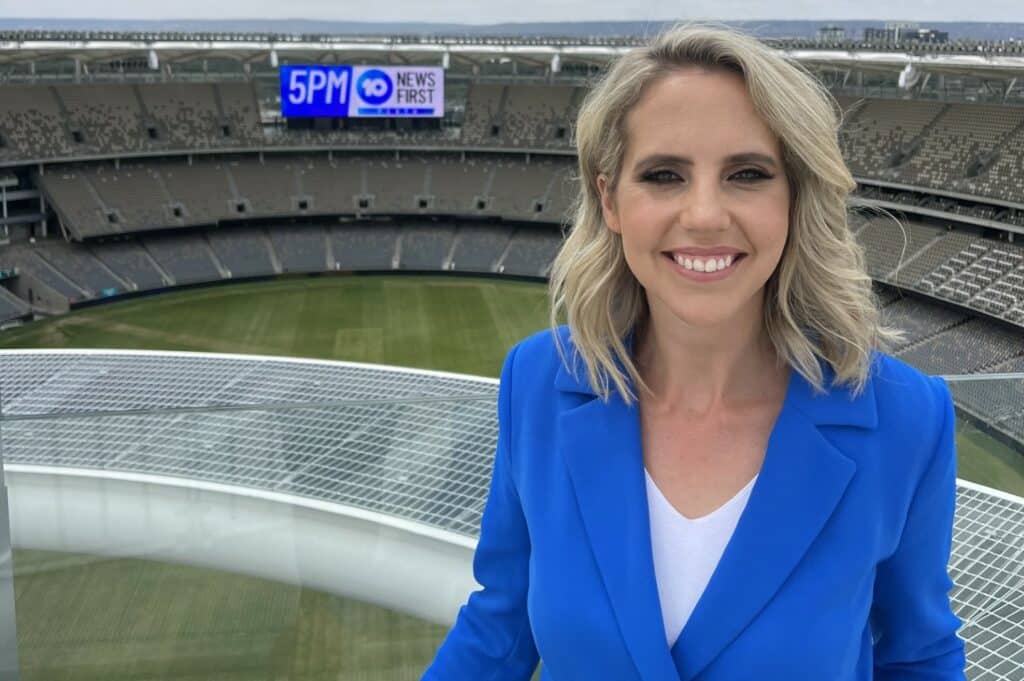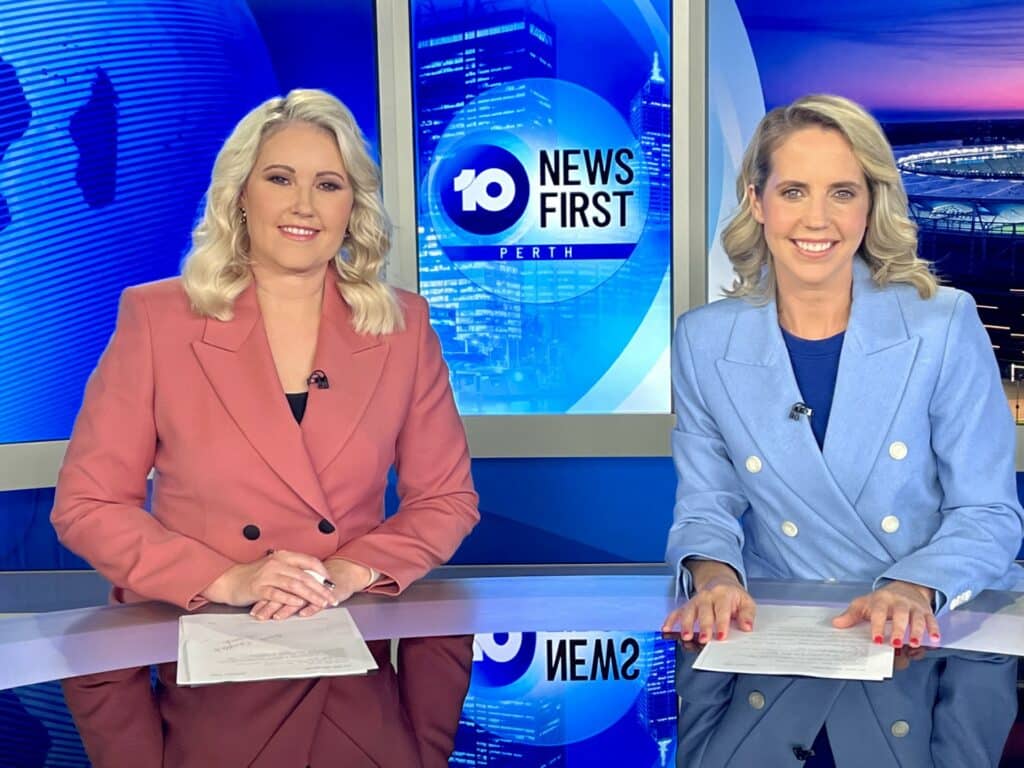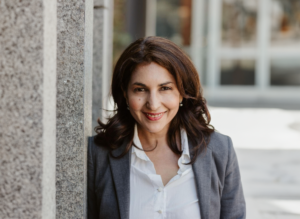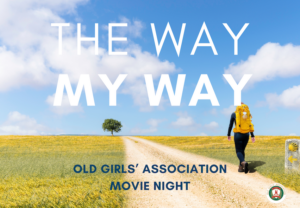Ashleigh’s Career Journey: Olympian to Sports Reporter

We recently spoke to Ashleigh Nelson (2004) about her journey, after graduating, from elite athlete to sports journalist. She tells us about her job transition, how she managed to balance her commitments, her inspirations and more. Read below to find out more about Ashleigh and her interesting career.
What have you been up to since graduating from Santa Maria?
It’s been too many years to detail everything (it’s scary how time passes)… After my time at Santa Maria, I was fortunate to have a 10-year hockey career which culminated in going to two World Cups, two Commonwealth Games and an Olympics. Once I finished up, I stayed involved in sport by heading back to university to change from being an occupational therapist to a sports reporter/broadcaster. After lots of hard work, I have happily been at Network 10 News covering local and international sport for the past three years. It is a great job which offers something different every day.
Can you tell us a bit about your career journey to where you are now?
I was prompted to change from occupational therapy to broadcasting when I tore my ACL in my knee and couldn’t compete at the Rio Olympics. The silver living of not going was that I picked up more work talking about what was happening at the Games and I discovered I really enjoyed it. Going back to study wasn’t an easy decision, but luckily the year went quite quickly, and now I get the opportunity to go to work every day doing something I am passionate about.
What are some highlights from your sporting and/or journalism career?
A career highlight in hockey was playing at the London Olympics, where I was well supported by family and friends from Santa Maria. It wasn’t our best outcome at a major event, but still certainly something I am proud of. Most recently in my journalism career I had the chance to head over east and cover the Sydney Hobart Yacht Race. I am not a sailing expert by any means, but it was still stunning to watch the skill, speed and power of the super maxi’s in a beautiful location. I am holding hope of heading to Paris to cover the Olympics as a reporter.
How did you juggle your sporting commitments with study/work?
Lots of communication. I was constantly having to negotiate with work and study in order to play hockey and support myself. While hockey still isn’t the most financially lucrative sport it is great to see women’s sport go from strength to strength and girls have a clear pathway to playing sport professionally. A bit of discipline also goes a long way when you’re trying to get the most out of yourself as an athlete while working.

What does a typical day at work look like for you?
Every day is different depending on which sport is being played locally. Most days I’ll be heading out to an interview or training session to keep track of what our wonderful WA athletes are up to. Most days a story will present itself and then it is my job to write the story, find the right angle/talent, work alongside the camera person to shoot it and I’ll also edit the story pictures to get it to air. What once took a long time, now comes together pretty quickly with a bit of practice. Once the news goes to air at 5.45 pm, I’ll knock off and do it all again the next day.
Who inspires you?
I was inspired from a broadcast perspective by radio presenter for the ABC, Karen Tighe. When I was considering if I wanted to go back to university for a second time, I watched her host a show live and immediately knew if I wanted to be as polished as her, a bit of extra study was required. She has since had a very serious health battle and has done so well to get back on air, which is also inspiring given her resilience and persistence.
Do you still play hockey or are you involved in the sport?
I still play in the Perth Premier League for the Suburban Lions. My knees are quite ‘rusty’ so I didn’t quite make it all the way through the season, so I helped coach. The girls did so well and won the club’s first ever Premier League Premiership which was very exciting. I am also assistant coach for the Perth Thundersticks at the moment.
While you were at the College were there any programs or teachers that had a significant impact on you? If so, how do these still affect you today?
I always loved Physical Education, Drama and English – which makes perfect sense as to why I pursued a career as an athlete and journalist. My Year 12 English teacher, Colleen McManus, was fabulous. She was always supportive and fair, which certainly helped with my writing. The PE Department were always willing to help manage my load of playing school sport, whilst pursuing elite level competition. Ms Covich, from Drama, perhaps gave me the perfect start to how to present in front of a camera and be creative, which I think you certainly need in a competitive field.
Do you have any advice for current students who are hoping to become a journalist?
From a journalist perspective, get involved and pick up the phone. Stories don’t come from texting, you need to build rapport with the community and the people who are willing to share their stories. I would also encourage you to get some work experience in a variety of media settings, such as print, TV or radio.
Thank you, Ashleigh, for sharing your story with us; it serves as a great example of how one’s career is constantly evolving!

From the President: May 2024
We have some great stories in this month’s blog. Also Look out for information about our OGA Movie Night screening of The Way, My Way.

Lisa Sorger: Sisterhood Network Series
Join us for an inspiring evening at the second session of our Sisterhood Networking Series with Dr Lisa Sorger (Ramakrishnan, 1987).

OGA Movie Night: The Way, My Way
Join us for a screening of The Way, My Way, the true story of an Australian man’s transformative experience walking the Camino de Santiago.
- alumni, Featured
Author: Santa Maria College
Santa Maria College is a vibrant girls school with a growing local presence and reputation. Our Mission is to educate young Mercy women who act with courage and compassion to enrich our world. Santa Maria College is located in Attadale in Western Australia, 16 km from the Perth CBD. We offer a Catholic education for girls in Years 5 – 12 and have 1300 students, including 152 boarders.







